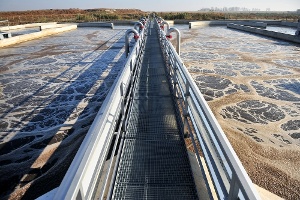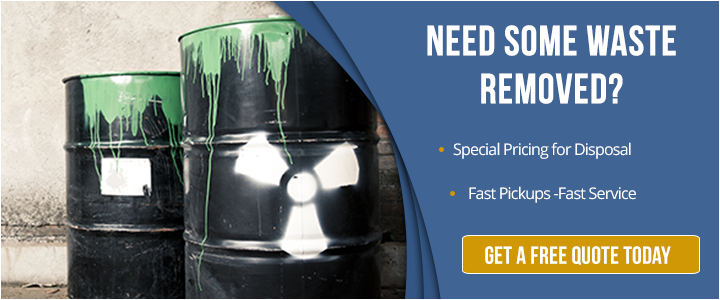Hazardous wastewater treatment plants extract usable water from industrial wastes and make it safe to discharge in the surrounding environment.
Yet for companies that generate hazardous waste, a wastewater treatment plant can play an important role in the recycling of water-based waste. In fact, this water can be used on-site for processes like cooling, solvent distillation and cleaning.
If your company generates spent solvents as part of its manufacturing process, choosing a wastewater treatment plant that specializes in hazardous waste and uses the wastewater as part of a zero-waste strategy can significantly boost your company’s sustainability. Here’s what you need to know about what happens inside a hazardous wastewater treatment plant and how to transport your waste to this type of facility.
Inside A Hazardous Wastewater Treatment Plant
Hazardous wastewater treatment takes acids, bases, coolants, oily water, latex paint and other water-based wastes and sends them through a treatment process that results in the extraction of usable water.
coolants, oily water, latex paint and other water-based wastes and sends them through a treatment process that results in the extraction of usable water.
In early industrial wastewater treatment plants in the United States, machinery was designed to clean water for discharge into nearby streams or bodies of water. The modern treatment facility has expanded water treatment options to include the reuse of water on-site rather than ejecting it into the environment.
While every wastewater treatment plant may differ in processes, here is what one process may look like:
- A hazardous waste disposal company transports the water-based waste to a treatment plant, where it is received in drums, totes and tankers.
- An initial inspection and fingerprint analysis occurs in the receiving area to identify the waste.
- Waste is directed to the water treatment area.
- Corrosive liquids go to the neutralization area first.
- After neutralized, waste moves to the primary treatment area that includes phase separation, settling, flocculation and final filtering.
- Finished clean water is stored in an accumulation tank.
Once treated water is stored in the accumulation tank, it is ready for onsite use, such as in a cooling tower or a primary combustion chamber that is used during a waste-to-energy process.
Getting Your Waste To A Wastewater Treatment Plant
If you generate wastewater as part of your industrial operations, sending it to a wastewater treatment facility that reuses water on-site rather than ejecting it into the environment can help boost your sustainability.
To ensure that your waste safely arrives at its destination, it’s important to work with a certified and experienced company that manages industrial waste disposal.
Although the wastewater is no longer at your facility, you are responsible for it until it is properly treated and disposed of, otherwise known as cradle to grave requirements.
When searching for a hazardous waste disposal company, it’s important to work with one that is experienced in the waste streams you produce. Each waste stream has its own set of procedures and laws that must be followed during disposal.
Your needs may change over time, which is why it’s also important to work with a disposal company that can manage different legal requirements as your waste streams change.
The best disposal companies will offer a hazardous waste walk-through program to help address any current and future needs. This type of program evaluates your business, offering insight into areas of focus such as waste manifesting, hazardous waste procedures, storage evaluation, emergency readiness and employee training procedures.
The Future of the Modern Hazardous Waste Treatment Plant
Converting water-based hazardous waste into usable water is just the latest innovation in a long line of sustainable changes and updates made in the world of hazardous waste treatment.
Taking advantage of this sustainable solution begins with hiring a reputable hazardous waste disposal company that will safely transport your waste to a wastewater treatment facility so that you can rest assured that your waste management processes are both sustainable and legal.


Comment